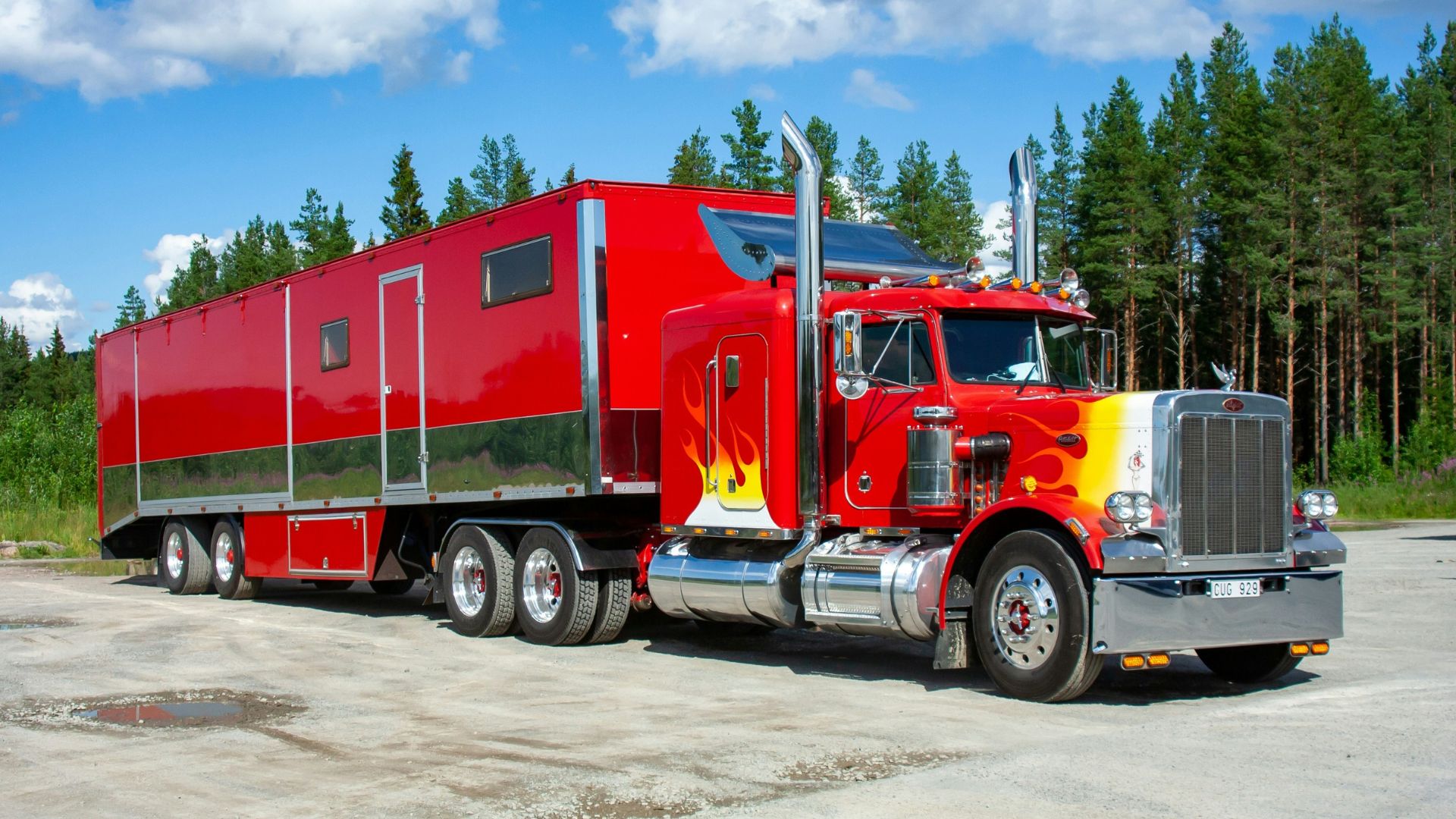Impacts and Challenges of Weather in the Trucking and Freight Industry

The recent havoc wreaked by Hurricane Helene and Hurricane Milton across parts of the United States serves as a stark reminder of the impact that severe weather can have. Beyond damage to property and potential loss of life, severe weather represents a real threat to the supply chain — which can be even more critical when communities may need emergency supplies.
From dangerous road conditions to widespread supply-chain disruptions, severe weather events can have a major impact on trucking operations, affecting everything from delivery schedules and driver safety to customer satisfaction and overall profitability. We wanted to explore the impacts and challenges of weather in the trucking and freight industry with this overview and highlight how trucking companies can better prepare for severe weather.
Read our TMS Buyer's Guide
Discover the best way to evaluate and choose the right TMS software solution for your business.
Top 5 Ways Severe Weather Impacts Trucking
Weather impacts the trucking industry on multiple levels, causing delays, jeopardizing driver safety, impacting customer satisfaction, varying conditions across regions, and highlighting the need for real-time weather data.
1. Driver Safety
Driver safety is critical in the trucking industry, and severe weather conditions magnify the risks faced by truckers on the road. Reduced visibility, slippery roads, icy conditions, washed out roads, and strong winds can lead to accidents. In fact, data provided by the U.S. Department of Transportation illustrates that 21% of trucking accidents in the U.S. are related to severe weather. It is vital to ensure driver safety in severe conditions and it requires careful planning.
2. Weather Delays and Increased Costs
Severe weather events like hurricanes, blizzards, and even heavy rainfall can lead to road closures, detours, and reduced speed limits, causing significant delivery delays. These delays not only disrupt schedules but lead to increased costs for trucking companies, including detention fees which can range from $50 - $250 per hour, increased fuel expenses, more empty miles, and potential loss of temperature- or time-sensitive cargo. The increased delays may also mean lost revenue for shipments that are given to other providers.
3. Negative Customer Satisfaction
Weather-related delays can inevitably lead to customer dissatisfaction. Late deliveries disrupt supply chains, leading to production delays, stock shortages, and frustrated customers at every point in the supply chain. Maintaining clear communication and managing expectations during severe weather events is essential for mitigating negative impacts on customer relationships.
4. Weather Impacts Different Regions in Different Ways
Weather patterns vary significantly across different regions and countries. While hurricanes may be a major concern in coastal areas of the United States, heavy snowfall and sub-zero temperatures pose challenges for truckers in Canada and similar weather can affect different areas in different ways. For example — snow in the Southern United States will have a major impact on road conditions compared to the Midwest United States, due to snow removal capabilities. Understanding the specific weather risks associated with different regions is important for effective route planning.
5. Up-to-the-Minute Weather Data
Access to accurate and up-to-the-minute weather data is crucial for trucking companies to make informed decisions and adapt to changing conditions. Real-time weather updates enable dispatchers to plan routes effectively, anticipate potential delays, and communicate proactively with drivers and customers. It is important to note that up-to-the-minute weather updates do not always provide information on road conditions or closures.
How Can Trucking Companies Prepare for Severe Weather?
While it's impossible to completely eliminate the impact of severe weather, trucking companies can take proactive steps to prepare and mitigate risks:
- Utilize a High-Quality TMS — A comprehensive TMS like TransPlus provides real-time shipping updates, route optimization capabilities, and communication tools to help manage the disruptions caused by severe weather more effectively.
- Consolidate Shipments with LTL/FTL Capabilities — Combining shipments can reduce the number of trucks on the road during severe weather, minimizing the potential risks to drivers, equipment, and shipments.
- Explore Alternative Shipping Solutions — If available, consider alternative transportation modes like rail or intermodal to bypass affected areas. Freight companies must be able to be creative in finding solutions that mitigate the effects of severe weather.
READ MORE: Major Challenges Facing the Transportation Industry in 2024
Weather plays a significant role in the trucking and freight industry, presenting both challenges and opportunities for many companies. By understanding the impacts and challenges of severe weather on the trucking industry and implementing proactive strategies, companies can navigate these challenges effectively and ensure the safety of their drivers while maintaining operational efficiency and customer satisfaction.
Contact TransPlus today to learn more about how our TMS can help your business weather any storm!
Read our TMS Buyer's Guide
Navigate the TMS software landscape with our comprehensive buyer's guide - find the perfect platform for your trucking business today.

Latest From the Blog
Our Insights on Tech, Industry Trends, and News.

5 Must-Have Features for Your TMS

Why Freight Carriers Are Switching to a Cloud-Based TMS

